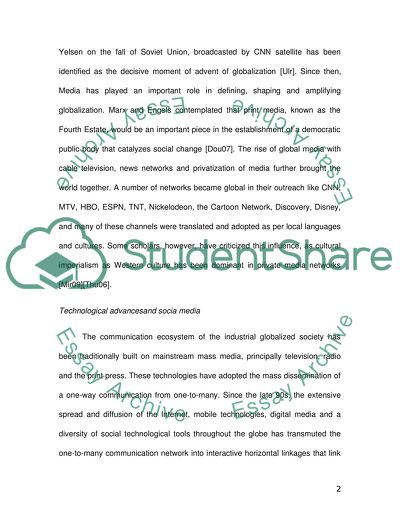Cite this document
(“The Role of Mainstream Media Limited in Contemporary Globalized Essay”, n.d.)
Retrieved from https://studentshare.org/journalism-communication/1445523-critical-essay
Retrieved from https://studentshare.org/journalism-communication/1445523-critical-essay
(The Role of Mainstream Media Limited in Contemporary Globalized Essay)
https://studentshare.org/journalism-communication/1445523-critical-essay.
https://studentshare.org/journalism-communication/1445523-critical-essay.
“The Role of Mainstream Media Limited in Contemporary Globalized Essay”, n.d. https://studentshare.org/journalism-communication/1445523-critical-essay.


